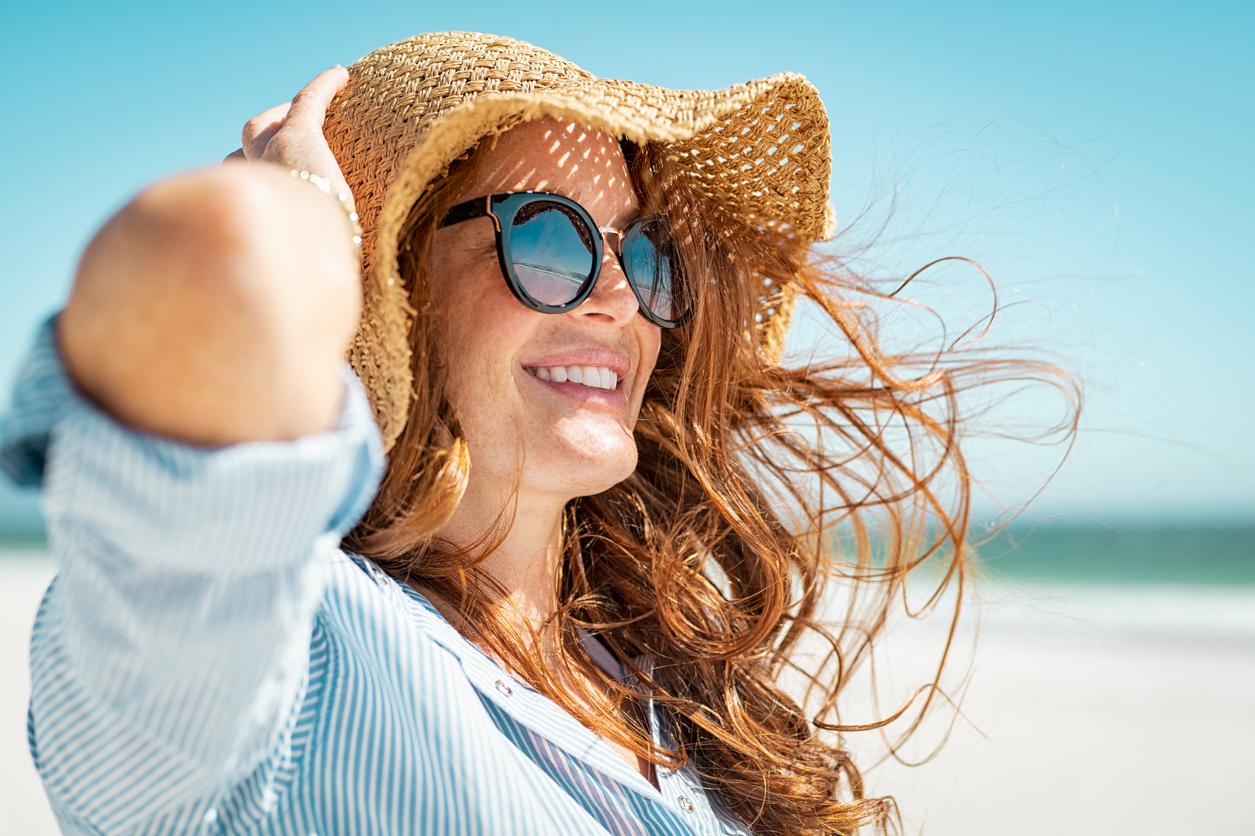UV Protection
As we mentioned in our last blog post, July is UV safety month! Did you know that UV radiation can also affect your eyes? Exposure to UV radiation can lead to eye cancer, cataracts, sunburn on the eye, and growths on or near the eyes. Just like you protect your skin from the sun using sunblock and protective clothing, it’s vital to protect your eyes from the damaging effects of the sun as well. Follow these tips from American Academy of Ophthalmology to protect your eyes from UV radiation:
- Aim to avoid being outside between 10am-2pm when the sun’s UV rays are strongest.
- When choosing sunglasses, make sure they block 100% of UV-A rays and UV-B rays. Also, look for wrap around styles that prevent the sun’s rays from entering from the side.
- Even if you wear contact lenses with UV protection, still wear sunglasses.
- In addition to your sunglasses, wear a broad-brimmed hat to protect your eyes.
- Never look directly at the sun. Looking directly at the sun at any time, including during an eclipse, can lead to solar retinopathy, damage to the eye’s retina from solar radiation.
- It is important to note that the sun’s rays can pass through haze and thin clouds, and sun damage to eyes can occur anytime during the year. So eye protection is always needed!
- Make sure your children have the same level of protective sunglasses and also wear their hats.
Health and Safety Tips for Your Eyes
As stated by the American Academy of Ophthalmology, one of the best tools for caring for your eyes is regular medical screenings. This is especially true for adults. Many eye diseases progress without symptoms, such as glaucoma, and you don’t know you have it until your vision is affected. Early detection and treatment greatly improve the chances of saving vision.
Your family’s health history plays a big role in your vision. This is true regardless of ethnic or racial background. Make sure to let your ophthalmologist know if certain eye conditions run in your family so they can be aware of what to monitor and look for during your screenings. Many inherited diseases benefit from early treatment!
Your eyes will also benefit from taking the proper safety precautions we’ve listed below:
- Eat Well: Good eye health starts with the food on your plate. Nutrients like omega-3 fatty acids, beta carotene, lutein, zinc, and vitamins C and E might help ward off age-related vision problems like macular degeneration and cataracts.
- Use Safety Eyewear: Protective eye wear can greatly reduce your risk for eye injuries. Whether you work with hazards materials or chemicals at work, are doing home improvement or wood working projects, are doing yard work, or playing sports, make sure to always wear the appropriate safety gear.
- Stay Safe At Home: While you may not think about it, everyday life at home can pose threats to your eyes. When cooking, use lids or grease shields on sizzling pans prevent spattering oil from reaching the eye. When cleaning, read product labels first. They usually have information on eye safety.
- Take Breaks At Work: If your job requires computer work, try wearing blue light blocking glasses and take breaks from the screen often to prevent eye strain and irritation.
To learn more, visit the American Academy of Ophthalmology!




